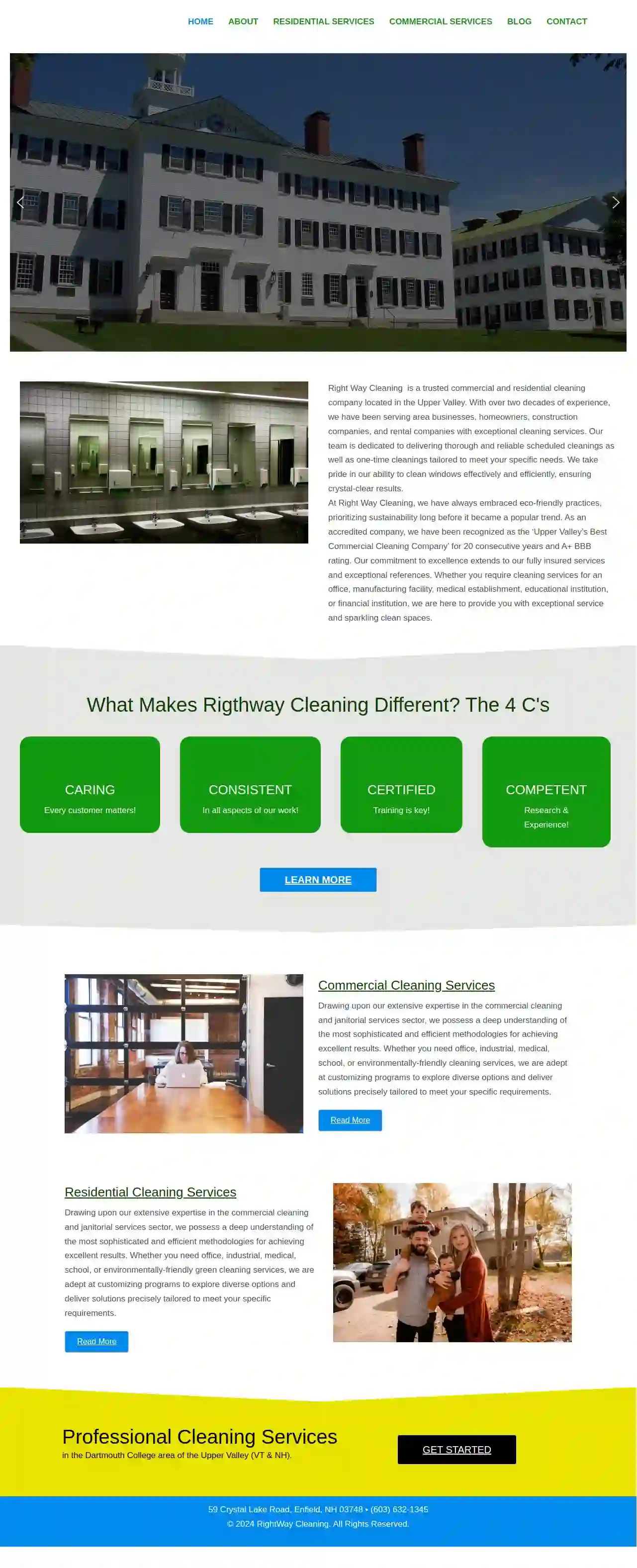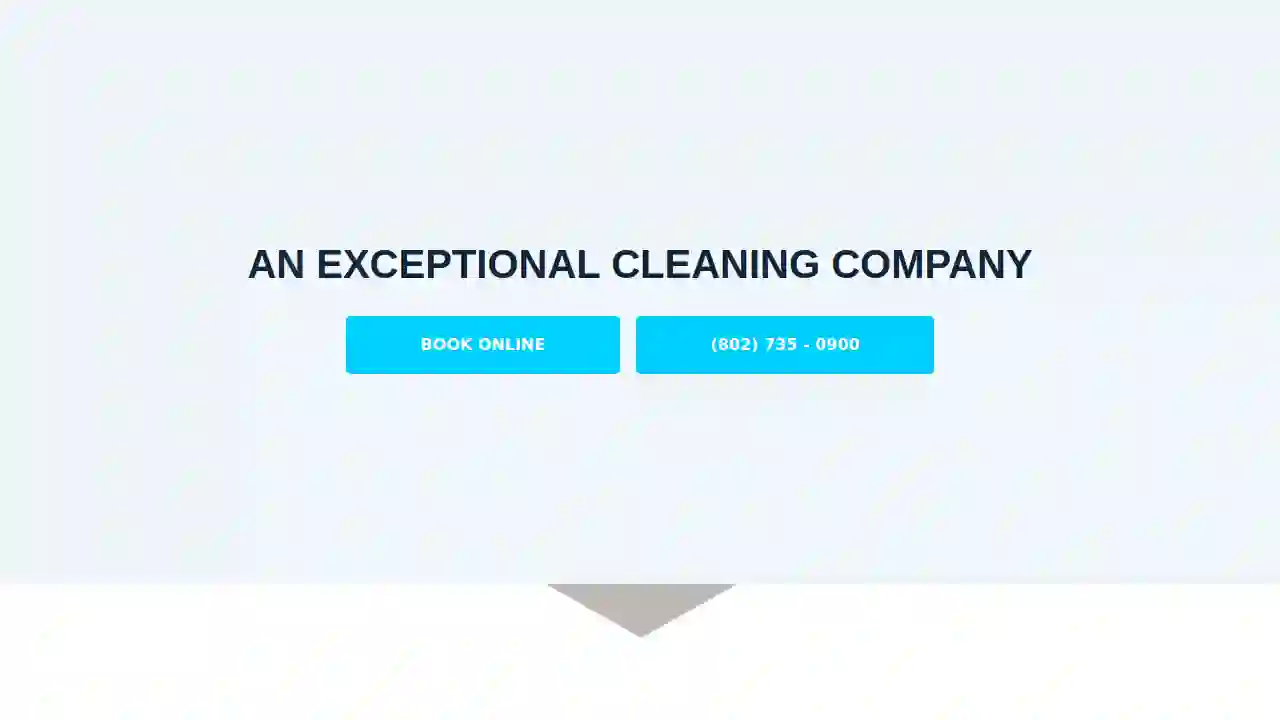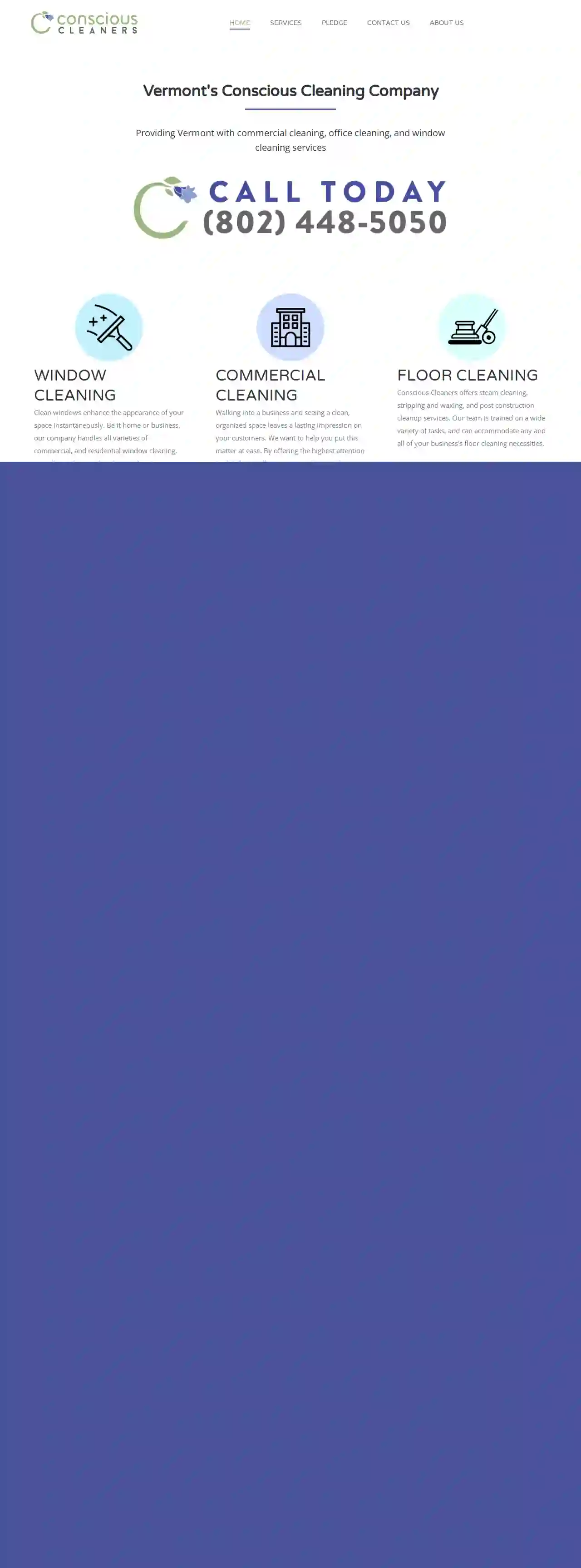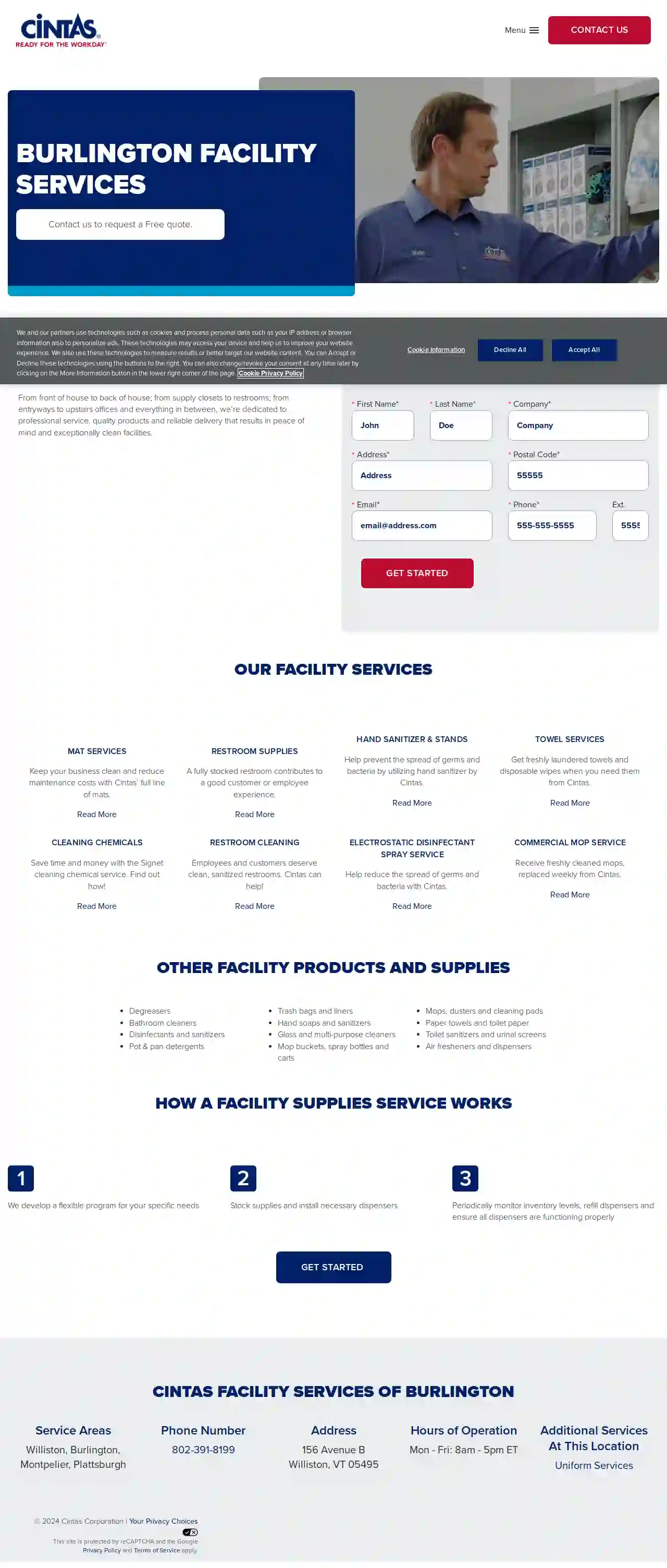Cleaning Services Randolph
Best Professional Cleaners in Randolph
Get up to 3 Professional Cleaners quotes for your project today! Compare profiles, reviews, accreditations, portfolio, etc... and choose the best service.
Service Needed
City or Town

Upper Valley Cleaning Solutions
57 reviewsBurlington, US- Services
- Why Us?
- Gallery
Get Quote
JaniTech
3.311 reviewsBurlington, US- Services
- Why Us?
Get Quote
Right Way Cleaning LLC
4.819 reviewsBurlington, US- Services
- Why Us?
Get Quote
Cleaners Unit
4.656 reviewsBurlington, US- Services
- Why Us?
Get Quote- Sa
Safi Commercial Cleaning
4.69 reviewsBurlington, US- Services
- Why Us?
Get Quote - CS
CSR Service LLC
57 reviewsBurlington, US- Services
- Why Us?
Get Quote 
Conscious Cleaners Vermont
513 reviewsBurlington, US- Services
- Why Us?
Get Quote
Cintas Facility Services
55 reviewsBurlington, US- Services
- Why Us?
Get Quote- St
Steward’s Housekeeping and Property Management L.L.C.
513 reviewsBurlington, US- Services
- Why Us?
Get Quote - Cl
Cleaning Vermont LLC
57 reviewsBurlington, US- Services
- Why Us?
Get Quote
Over 60,241+ Janitorial Companies in our network
Our janitorial contractors operate in Randolph & surroundings!
CleaningMatch has curated and vetted Top Janitorial Services in and around Randolph. Find a top & trustworthy contractor today.
Frequently Asked Questions About Cleaning Services
Find answers to common questions about cleaning services and hiring cleaning companies in the USA.
- Frees up your time: Cleaning can be time-consuming, especially for larger properties or busy individuals. Hiring a cleaning service allows you to focus on other priorities, such as work, family, or leisure activities.
- Ensures a deeper clean: Professional cleaners are trained in effective cleaning techniques and have access to specialized equipment, resulting in a more thorough clean than you might achieve on your own.
- Reduces allergens and improves hygiene: Thorough cleaning removes dust, allergens, and germs, creating a healthier living environment, particularly for those with allergies or sensitivities.
- Reduces stress and improves well-being: Coming home to a clean and tidy home can reduce stress and promote a sense of calm and order.
- Check Fabric Care Label: Always check the upholstery care label for cleaning instructions specific to the fabric. Some fabrics may require professional cleaning.
- Vacuum: Vacuum the upholstery thoroughly to remove dust and loose debris. Use a brush attachment for crevices and seams.
- Spot Cleaning: For stains, blot with a clean cloth or sponge. Avoid rubbing, as it can spread the stain. Use a mild upholstery cleaner or a homemade solution of water and mild dish soap.
- Upholstery Cleaning Machine: If the fabric is suitable for wet cleaning, you can use an upholstery cleaning machine. Follow the machine's instructions carefully and test a small, hidden area first.
- Professional Upholstery Cleaning: For delicate fabrics, deep cleaning, or stubborn stains, consider hiring a professional upholstery cleaning service. They have specialized knowledge and equipment to clean upholstery safely and effectively.
- Cleaning: Removing dirt, dust, and debris from surfaces using soap or detergent and water. It improves the appearance and removes visible contaminants.
- Sanitizing: Reducing the number of bacteria on surfaces to a safe level. It uses chemical disinfectants or heat to kill or inactivate bacteria.
- Disinfecting: Killing or inactivating most disease-causing microorganisms on surfaces. It uses stronger chemical disinfectants than sanitizing and targets a wider range of pathogens.
- Weekly: Suitable for busy households with children or pets, ensuring a consistently clean and healthy environment.
- Bi-weekly: A good option for smaller households or those who maintain a relatively clean home.
- Monthly: May be sufficient for individuals or couples who live a minimalist lifestyle.
- Quarterly or Annually: Can be suitable for deep cleaning or seasonal cleaning tasks.
Are cleaning services worth it?
The value of a cleaning service depends on your individual circumstances and priorities. Consider these benefits:
If you value these benefits and find the cost justifiable, cleaning services can be a worthwhile investment in your time and well-being.
If you value these benefits and find the cost justifiable, cleaning services can be a worthwhile investment in your time and well-being.
How do I clean upholstery without damaging the fabric?
Cleaning upholstery requires care to avoid damaging delicate fabrics. Follow these steps:
Always test any cleaning solution on a small, inconspicuous area first to avoid discoloration or damage.
Always test any cleaning solution on a small, inconspicuous area first to avoid discoloration or damage.
What is the difference between cleaning, sanitizing, and disinfecting?
While often used interchangeably, cleaning, sanitizing, and disinfecting have distinct meanings:
Cleaning is usually the first step, followed by sanitizing or disinfecting depending on the level of hygiene required.
Cleaning is usually the first step, followed by sanitizing or disinfecting depending on the level of hygiene required.
How often should I have my house cleaned?
The frequency of house cleaning depends on factors like your lifestyle, the size of your house, and your personal preferences. Here's a general guideline:
You can adjust the frequency based on your needs and budget. Some people opt for weekly cleaning for high-traffic areas like kitchens and bathrooms and bi-weekly cleaning for the rest of the house.
You can adjust the frequency based on your needs and budget. Some people opt for weekly cleaning for high-traffic areas like kitchens and bathrooms and bi-weekly cleaning for the rest of the house.
Are cleaning services worth it?
The value of a cleaning service depends on your individual circumstances and priorities. Consider these benefits:
If you value these benefits and find the cost justifiable, cleaning services can be a worthwhile investment in your time and well-being.
- Frees up your time: Cleaning can be time-consuming, especially for larger properties or busy individuals. Hiring a cleaning service allows you to focus on other priorities, such as work, family, or leisure activities.
- Ensures a deeper clean: Professional cleaners are trained in effective cleaning techniques and have access to specialized equipment, resulting in a more thorough clean than you might achieve on your own.
- Reduces allergens and improves hygiene: Thorough cleaning removes dust, allergens, and germs, creating a healthier living environment, particularly for those with allergies or sensitivities.
- Reduces stress and improves well-being: Coming home to a clean and tidy home can reduce stress and promote a sense of calm and order.
If you value these benefits and find the cost justifiable, cleaning services can be a worthwhile investment in your time and well-being.
How do I clean upholstery without damaging the fabric?
Cleaning upholstery requires care to avoid damaging delicate fabrics. Follow these steps:
Always test any cleaning solution on a small, inconspicuous area first to avoid discoloration or damage.
- Check Fabric Care Label: Always check the upholstery care label for cleaning instructions specific to the fabric. Some fabrics may require professional cleaning.
- Vacuum: Vacuum the upholstery thoroughly to remove dust and loose debris. Use a brush attachment for crevices and seams.
- Spot Cleaning: For stains, blot with a clean cloth or sponge. Avoid rubbing, as it can spread the stain. Use a mild upholstery cleaner or a homemade solution of water and mild dish soap.
- Upholstery Cleaning Machine: If the fabric is suitable for wet cleaning, you can use an upholstery cleaning machine. Follow the machine's instructions carefully and test a small, hidden area first.
- Professional Upholstery Cleaning: For delicate fabrics, deep cleaning, or stubborn stains, consider hiring a professional upholstery cleaning service. They have specialized knowledge and equipment to clean upholstery safely and effectively.
Always test any cleaning solution on a small, inconspicuous area first to avoid discoloration or damage.
What is the difference between cleaning, sanitizing, and disinfecting?
While often used interchangeably, cleaning, sanitizing, and disinfecting have distinct meanings:
Cleaning is usually the first step, followed by sanitizing or disinfecting depending on the level of hygiene required.
- Cleaning: Removing dirt, dust, and debris from surfaces using soap or detergent and water. It improves the appearance and removes visible contaminants.
- Sanitizing: Reducing the number of bacteria on surfaces to a safe level. It uses chemical disinfectants or heat to kill or inactivate bacteria.
- Disinfecting: Killing or inactivating most disease-causing microorganisms on surfaces. It uses stronger chemical disinfectants than sanitizing and targets a wider range of pathogens.
Cleaning is usually the first step, followed by sanitizing or disinfecting depending on the level of hygiene required.
How often should I have my house cleaned?
The frequency of house cleaning depends on factors like your lifestyle, the size of your house, and your personal preferences. Here's a general guideline:
You can adjust the frequency based on your needs and budget. Some people opt for weekly cleaning for high-traffic areas like kitchens and bathrooms and bi-weekly cleaning for the rest of the house.
- Weekly: Suitable for busy households with children or pets, ensuring a consistently clean and healthy environment.
- Bi-weekly: A good option for smaller households or those who maintain a relatively clean home.
- Monthly: May be sufficient for individuals or couples who live a minimalist lifestyle.
- Quarterly or Annually: Can be suitable for deep cleaning or seasonal cleaning tasks.
You can adjust the frequency based on your needs and budget. Some people opt for weekly cleaning for high-traffic areas like kitchens and bathrooms and bi-weekly cleaning for the rest of the house.